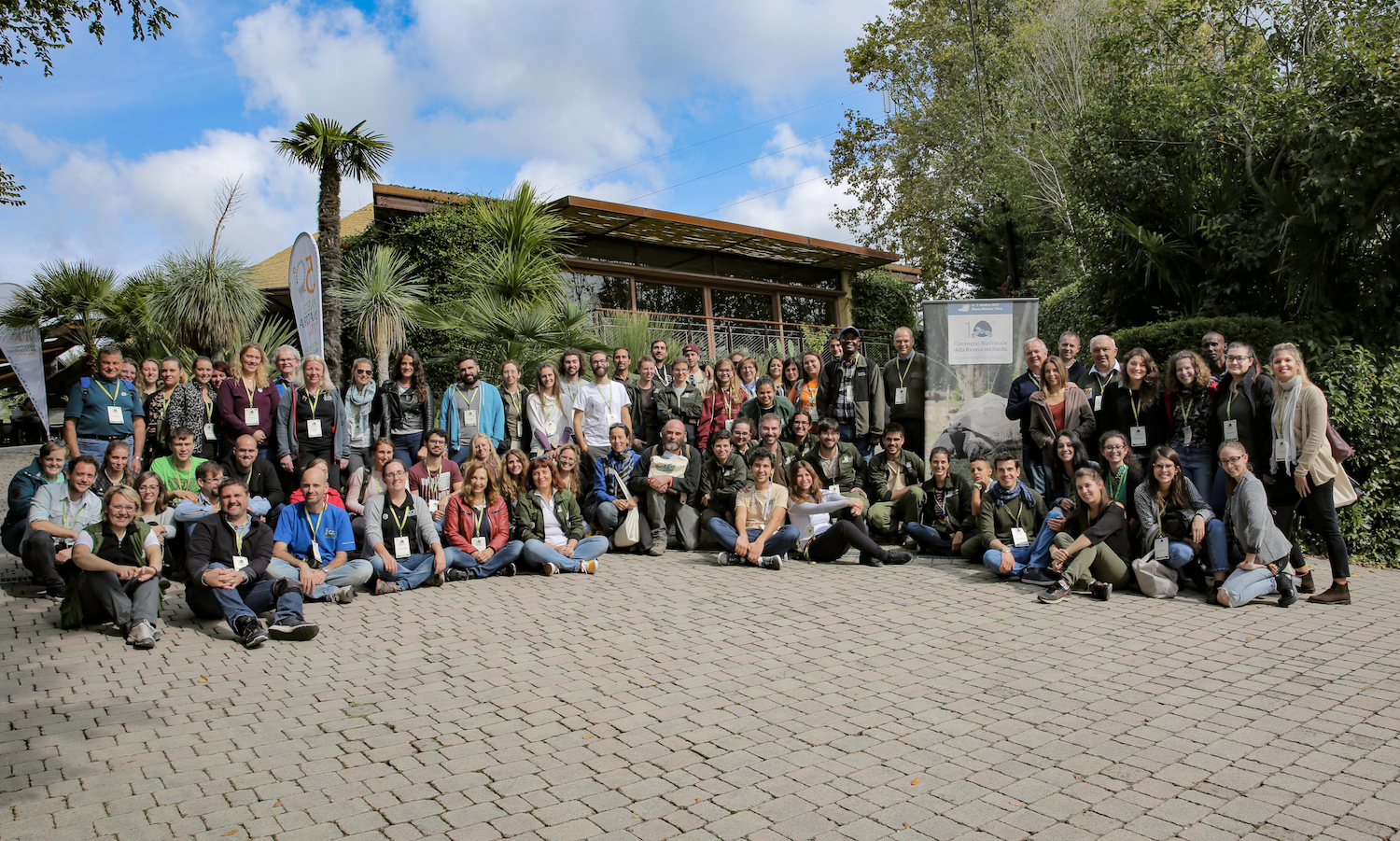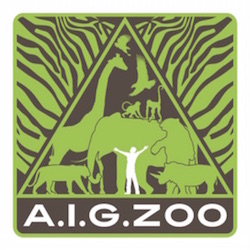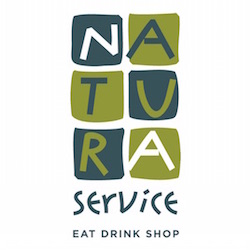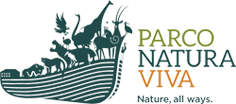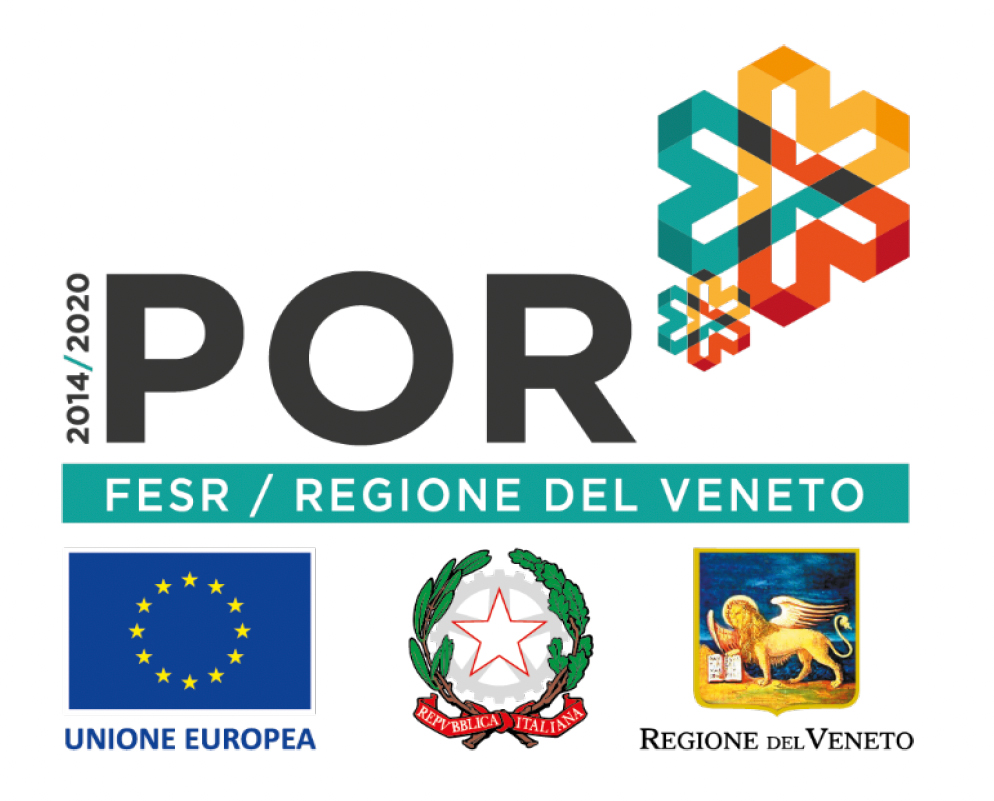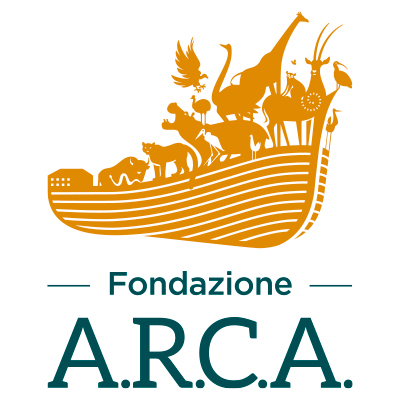X Convegno Nazionale della Ricerca nei Parchi
4 - 7 ottobre 2019
Parco Natura Viva,
Bussolengo (VR)
Il Parco Natura Viva organizza e ospita la decima edizione del Convegno Nazionale della Ricerca nei Parchi dal 4 al 7 ottobre 2019. Il Convegno è dedicato alle indagini scientifiche condotte all’interno dei giardini zoologici e degli acquari e alle attività di ricerca e conservazione in natura. La presentazione degli ultimi risultati e il confronto con ricercatori italiani e internazionali stimoleranno nuovi studi nei diversi ambiti di ricerca, con un ricco programma che prevede sessioni plenarie, workshop, presentazioni orali e poster session.
Tematiche: Animal Behaviour, Animal Welfare, Animal Social Relationship, Animal Communication, Animal Cognition, Veterinary Science, Conservation Education, In Situ Conservation.
Iscrizione
Per iscriversi al decimo Convegno Nazionale della Ricerca nei Parchi è necessario compilare la scheda di iscrizione e inviarla in formato elettronico a segreteria.convegno@parconaturaviva.it unitamente a una copia della ricevuta di pagamento dell’iscrizione e un attestato che possa comprovare la situazione di studente*, qualora necessario.Quote di partecipazione
|
Early bird registration
registrazione fino al 10 settembre 2019
|
Regular registration
registrazione dal 11 settembre 2019
|
|
| Partecipante regolare | € 90 | € 110 |
| Socio UIZA, EAZA, API, SIE, SIVAE o SIVASZOO | € 70 | € 90 |
| Studente* o socio AIGZOO | € 50 | € 70 |
*Sono considerati studenti tutti gli iscritti ai corsi di laurea e di dottorato e i titolari di borse di studio.
Pagamento
Il pagamento va effettuato con bonifico su conto corrente bancario alle seguenti coordinate:Intestazione: PARCO NATURA VIVA GARDA ZOOLOGICAL PARK Srl
Banca d’appoggio: BCC BANCA DI VERONA – Filiale di Sant’Ambrogio di Valpolicella (VR)
IBAN: IT70 O084 1659 8200 0013 0111 994
BIC: ICRAITR1BKC
Sponsor
Abstract submission
È possibile presentare un contributo scientifico in forma di comunicazione orale o come poster. In questo caso, insieme alla scheda di iscrizione, sarà necessario inviare anche l'abstract in formato Microsoft Word all'indirizzo segreteria.convegno@parconaturaviva.it entro il 10 settembre 2019, specificando nell’oggetto della mail “abstract CR2019 - cognome dell’autore che presenterà il contributo”. Gli autori saranno informati sull’accettazione dei lavori entro il 15 settembre 2019. È disponibile un template dell'abstract in formato Microsoft Word con le indicazioni per la stesura.
Presentazioni orali
Vista la presenza di ospiti internazionali le slide delle presentazioni dovranno essere in lingua inglese. L’esposizione potrà invece avvenire sia in lingua italiana, sia in lingua inglese. A disposizione dei relatori vi saranno computer e microfono.
Poster
I poster dovranno avere una dimensione massima di 594 x 841 mm (formato A1) con il lato lungo disposto verticalmente. Nell'ottica di realizzare un convegno plastic free i poster dovranno essere stampati su carta o su telo. Potranno essere affissi sugli appositi supporti nella sala del convegno prima dell’inizio della prima poster session. Vista la presenza di ospiti internazionali i poster dovranno essere in lingua inglese mentre l’esposizione potrà avvenire in lingua italiana o in lingua inglese.
Sponsor
Scarica il programma del convegno!
Venerdì 4 Ottobre |
|
| 12:00 | Registration |
| 14:00 | Welcome |
| 14:00 | SIVAE (Società Italiana Veterinari per Animali Esotici) Session |
| 14:00 | Michele Capasso & Davide Ianniello |
| Parasitology: a one health discipline at the service of biodiversity conservation. | |
| 14:40 | Marta Caselli |
| Human activities negatively affect the health status of geladas from the Kundi highland (Ethiopia). | |
| 15:00 | SIVASZOO (Società Italiana Medici Veterinari degli Animali Selvatici e da Zoo) Session |
| 15:00 | Marco Campolo |
| Veterinary experiences "and not" during seizures and relocation of brown bears and other wild animals. | |
| 15:40 | Maddalena Iannacone |
| Echocardiography evaluations in giant Aldabra tortoises (Aldabrachelys gigantea) using training procedures. | |
| 16:00 | Alice Andolfatto |
| The “bald” lion: a teamwork success. | |
| 16:20 | Coffee break and poster session |
| 17:00 | Veterinary Medicine Session |
| 17:00 | Magdalena Schrank |
| Physiological pregnancy in a tiger affected by endometritis and benign mesenchymal neoplasm. | |
| 17:20 | Rossana Cordon |
| Case report: the use of fluralaner to treat sarcoptic mange in a captive brown bear. | |
| 17:45 | Mauro Delogu |
| Pathogens animal health implications in conservation programs: does climate matter? | |
| 18:30 | Icebreaker |
| 18:30 | Telmo Pievani |
| The new “House of Giants”: concept and narrative. | |
Sabato 5 Ottobre |
|
| 8:30 | Registration |
| 9:15 | Opening |
| 9:15 | Saluti delle autorità |
| 9:30 | Gloria Svampa |
| Ex-situ populations: are they still valuable for the conservation of species recovering in the wild? | |
| 10:00 | Sara Rota Nodari & Barbara De Mori |
| Participatory approach – implementation of a toolkit for the evaluation of the welfare of animals kept in zoos. | |
| 10:30 | Coffee break & poster session |
| 11:30 | Animal Communication and Behaviour |
| 11:30 | Elisabetta Palagi |
| Communication and mimicry in social mammals. | |
| 12:15 | Livio Favaro |
| Universal statistical patterns in African penguin vocal sequences. | |
| 12:30 | Carola Leonardi |
| Same problem, two species: phylogeny and ontogeny of learning in lemurs and in children. | |
| 12:45 | Beatrice Sartini |
| Behavioural analysis of the okapi (Okapia johnstoni). | |
| 13:00 | Lunch |
| 14:00 | Conservation Education |
| 14:00 | Maria Antonieta Costa |
| Partners in learning: an approach to conservation education to act for a sustainable future. | |
| 14:45 | Katia Dell'Aira & Marta Tezza |
| House of Giants: a new challenge for the education department. | |
| 15:00 | Clara Caspani |
| Stray dogs in Morocco: insights into human-animal interactions. | |
| 15:15 | Francesca Bosco |
| Young people for a better future. | |
| 15:30 | H. S. H. Princess Theodora von Liechtenstein |
| Green Teen Team – Responding to the climate movement. | |
| 15:45 | Wilton Nsimango |
| Connecting people with conservation. | |
| 16:30 | Coffee break & poster session |
| 17:00 | The hidden biota |
| 17:00 | Paolo Trevisi & Camillo Sandri |
| Gastrointestinal microbiota of the Seychelles giant tortoises. | |
| 17:45 | Maria Satti |
| Bifidobacterial occurrence in giant bats: the two new species Bifidobacterium vespertilionis and Bifidobacterium rousettii. | |
| 18:00 | House of Giants - HoG |
| 18:00 | Tim Schikora |
| The giant otter – a prime example of conservation work of zoos. | |
| 18:30 | Cesare Avesani Zaborra |
| Business plan of a new enclosure: HoG | |
| 19:00 | House of Giants Visit |
| 20:30 | Social dinner |
Domenica 6 Ottobre |
|
| 8:30 | Registration |
| 9:10 | In-situ Conservation I |
| 9:10 | Giovanni Amori |
| Atlases as a tool for knowledge and management of fauna: the EMMA2 project (European Mammals on Maps). | |
| 9:30 | Simon Bruslund |
| On the action planning for Alagoas antwren and blue-eyed ground-dove considering ex-situ intervention in Brazil. | |
| 10:00 | Francesco Rovero |
| Mongolia snow leopard 2015-2019: five years of searching for the ghost of the mountains. | |
| 10:30 | Coffee break & poster session |
| 11:30 | Cristina Giacoma |
| Maromizaha Multipurpose Centre: 10 years of research, conservation and community involvement. | |
| 12:00 | Claudio Ciofi |
| Conservation biology and population management of Komodo dragons: a multidisciplinary approach. | |
| 12:30 | Camillo Sandri |
| Fabian, Julia & Stelvio 50: a troubled love story, a chick and a release. | |
| 12:45 | Nicoletta Perco |
| A life dedicated to nature: in memory of my father Fabio Perco | |
| 13:00 | Group Photo |
| 13:15 | Lunch |
| 14:15 | Animal Communication and Behaviour II |
| 14:15 | Marco Gamba |
| The study of animal choruses: old views and new perspectives. | |
| 15:00 | Chiara De Gregorio |
| Females sing it jazzy: sexual differences in Indri’s call combination. | |
| 15:15 | Daria Valente |
| Don’t skimp on their voices! Indris (Indri indri) vocal repertoire. | |
| 15:30 | Valeria Torti |
| The unexpected payoff of eavesdropping! Protecting animal communities via passive acoustic monitoring techniques. | |
| 15:45 | Filippo Carugati |
| The behaviour of the black-and-white ruffed lemur (Varecia variegata) in the Maromizaha forest. | |
| 16:00 | Coffee break & poster session |
| 16:30 | Animal Behaviour and Welfare |
| 16:30 | Mara Gessini |
| African penguins on the move: analysis of behaviour before and after the transfer to a new enclosure. | |
| 16:45 | Francesca Vitali |
| Welfare and social behaviour of orphaned African lions rescued (Panthera leo) in Kenya. | |
| 17:00 | Elena Giulia Galardi & Martina Fabbroni |
| Lion pride vs streak of tigers: comparison of two ex-situ networks. | |
| 17:15 | Elena Mercugliano |
| Sociality of ex-situ Aldabra tortoises (Geochelone gigantea). | |
| 17:30 | Francesco Drago |
| Social grouping and behaviour of captive leopards (Panthera pardus). | |
| 17:45 | Giovanni Quintavalle Pastorino |
| Investigating the social behaviour of captive polar bears (Ursus maritimus). | |
| 18:00 | In-situ Conservation II |
| 18:00 | Adrian Hagatis & Alexandru Bulacu |
| Reintroduction of species, from in-situ to ex-situ. | |
| 18:30 | Johannes Fritz |
| Return of the northern bald ibis: impressions of a European LIFE+ reintroduction project. | |
| 19:00 | In campo per la conservazione! |
Lunedì 7 Ottobre |
|
| 9:00 | Registration |
| 9:30 | ICZ (International Congress of Zookepers) SYMPOSIUM |
| 9:30 | Liz Romer |
| The International Congress of Zookeeping | |
| 9:45 | Joanne Richardson |
| International Congress of Zoo Keepers 2021, New Zealand | |
| 10:00 | Sara Steward & Lex van der Leije |
| International Zookeeper Day (IZD), October 4th | |
| 10:30 | Coffee break and poster session |
| 11:00 | Liz Romer |
| The five domains of animal welfare and considerations in building a new zoo. | |
| 11:45 | Raúl Cabrera |
| SOS primates: an NGO created by keepers supporting a primate conservation project in the Democratic Republic of Congo | |
| 12:15 | Elia Lunghini |
| The second cycle of the A.I.G.ZOO | |
| 12:30 | And the winner is... |
| 13:00 | Group photo and farewell cocktail |
Sponsor
|
|
Keynote speaker
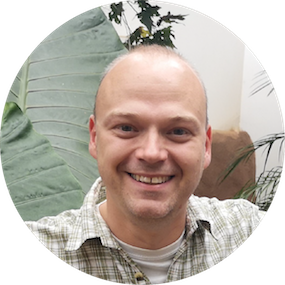 |
Simon BruslundAfter working as a Keeper at the Copenhagen Zoo and at the Weltvogel Park in Walsrode, Mr Simon Bruslund became birds’ Curator at the Al Wabra Wildlife Preservation in Qatar. Afterwards he was the Zoological Director at the Weltvogel Park in Walsrode for four years. He then covered the position of Curator at Loro Parque and then General Curator at Heidelberg Zoo. He then moved to Marlow where he became Head of Conservation at Vogel Park. The experience gained over the years brought Mr Bruslund to become also a Consultant in the fields of aviculture, training and conservation management. For four years he has been Chair of EAZA’s Parrot TAG and today he is the Vice Chair of the Silent Forest Campaign. |
|
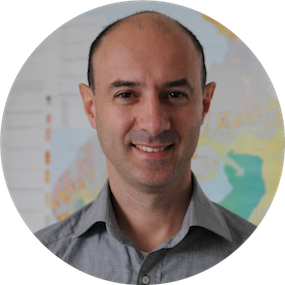 |
Claudio CiofiDr Claudio Ciofi graduated from the University of Florence in Animal Ecology and obtained a M.Sc. in Conservation Biology and a Ph.D. in Conservation Genetics from the University of Kent at Canterbury, UK. During his Ph.D. studies, Dr Ciofi set up the administrative and logistics aspects for a conservation project in the Komodo National Park, in Indonesia, and developed molecular markers for population genetic studies at the Zoological Society of London, UK. He had two postdoctoral fellowships in the USA, at the Smithsonian Institution and Yale University, respectively. Dr Ciofi currently lectures in molecular ecology and population genetics at the University of Florence, Italy, where he set up a molecular genetic laboratory applied to the management and conservation of endangered species. He recently contributed to the development of the first laboratory of molecular genetics applied to wildlife studies in Indonesia in collaboration with the Indonesian Institute of Science. |
|
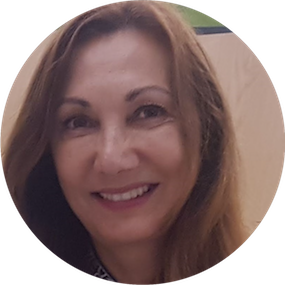 |
Maria Antonieta CostaMaria Antonieta Costa gained a Ph.D. in Pedagogy and started her professional career as Assistant Professor at Lisbon University where she stayed for 15 years in the education area. Since 2007, she has been Head of Education at Lisbon Zoo where she defines, develops and monitors the formal (75,000 students/year) and informal Education Plan (800,000 visitors/year) and leads the educational training program. She also leads the consolidation of institutional relations with the Portuguese Ministry of Educatio,n and establishes and manages institutional partnerships, both national and international, for increasing educational policies and for creating innovative learning scenarios. Dr Costa is an active member within the EAZA and the IZE; she is the Vice Chair of the EAZA Education Committee and of the IZE Europe/ Middle East Regional Representative. |
|
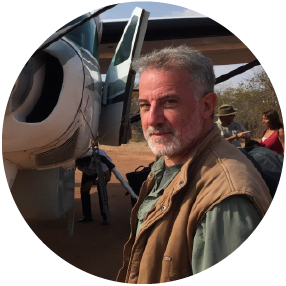 |
Mauro DeloguDoctor of Philosophy and winner of a scholarship for a Post Doctorate, Professor Delogu carries out research activities at the Aviary Pathology Institute of the University of Bologna and he is a contract fellow at the National Institute of Wildlife. He is also a Researcher in the Department of Veterinary Sciences at the University of Bologna and is Head of the Wildlife and Exotic Service (SeFSE) of the University of Bologna and the related laboratories. His research activities have been focused on the knowledge of pathogens’ ecology aimed at the study of pathocenosis, and to the identification of evolutionary mechanisms of ecological interface that link the environment, wildlife species, domestic animals and human beings. |
|
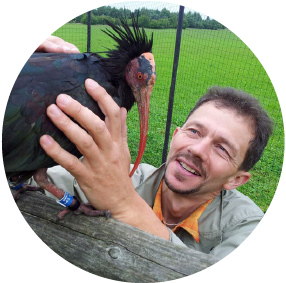 |
Johannes FritzDr Johannes Fritz is Head of the Waldrappteam, which he founded in 2002. Since 2014 he is the General Project Manager of the LIFE+ project "Reason for Hope” on the conservation of the Northern bald ibis. Dr Fritz studied Biology at the University of Innsbruck and Vienna and in 2000 he obtained his Ph.D. from the University of Vienna. He then worked in several Post Doctorate positions at the Konrad Lorenz Research Station Grünau, at the Konrad Lorenz Institute for Evolution and Cognition Research Altenberg near Vienna, and at the University of Cambridge. He is a Board Member of the International Advisory Group for the Northern Bald Ibis (IAGNBI), Member of the Northern Bald Ibis International Working Group (NBI-IWG) and Associate Member of the Department of Cognitive Biology at the University of Vienna. |
|
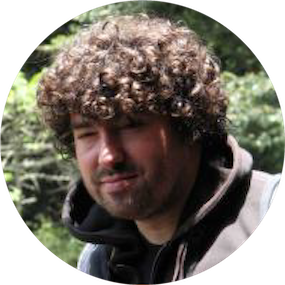 |
Marco GambaMarco Gamba received both his M.Sc. in Biology and his Ph.D. in Evolutionary Biology and Conservation of Biodiversity from the University of Turin, Italy. In 2011 he was appointed as tenured Research Scientist in Zoology at the University of Turin. He has spent several time doing research on lemurs’ behaviour and communication in Madagascar but also investigated other primate species in South Africa, Comoros, China and Vietnam. His current research topics include the study of the evolution, structure and function of animal acoustic signals, and the quantitative study of animal and human behaviour. He has taught courses in Ethology, Evolution of Behaviour and Communication, Zoology, and Methods in Biodiversity Conservation at the bachelor and graduate levels at the University of Turin, the University of Mahajanga and at the University of Comoros, and was invited in other universities for seminars and lectures. |
|
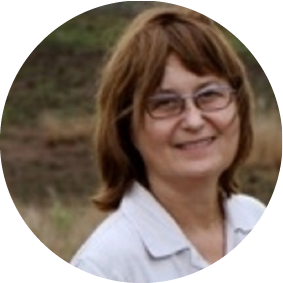 |
Cristina GiacomaDirector of the Department of Life Sciences and System Biology of the University of Turin, Dr Cristina Giacoma is a key figure in the management and coordination of the Madagascar Conservation Project that implements educational programmes for students and Malagasy communities, and on field and ex-situ research projects in order to define new strategies for the conservation of Madagascar’s fauna. Furthermore, she is the Coordinator of the “Volohasy-Bambù” Project in the forest of Maromizaha that aims at fighting the loss of forest ecosystems through reforestation actions in degraded areas and at implementing habitat restoration actions focused on some plant species that represent a fundamental resource for some species of lemurs. |
|
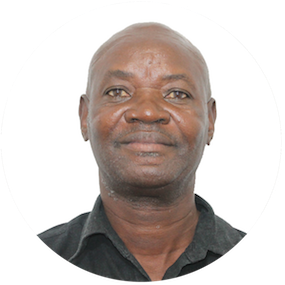 |
Wilton NsimangoWilton Nsimango is the Education and Community Development Program Manager at Painted Dog Conservation, situated on the periphery of the renowned Hwange National Park in Zimbabwe. Born in Bulawayo, the second largest city of Zimbabwe, he went to both rural and urban primary and secondary education. Mr Nsimango graduated in 1985 as teacher from Gwanda Zintec College, obtained a B.Sc. in 1997 in Education Management, Policy and Planning and attained a M.Sc. in Education Management in 2003. He joined the field of wildlife conservation in 2004 at the Painted Dog Conservation as Environmental Officer, and he was then promoted to Education and Community Programs Manager, running a world-class education program that is looked up to by most people, both locally and internationally. He is in charge of all the operations of the Department and coordinates the smooth running of the programs associated with community issues. |
|
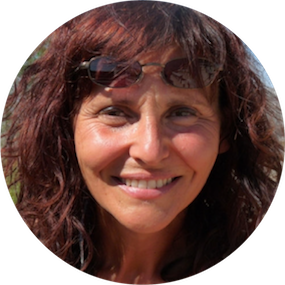 |
Elisabetta PalagiDr Elisabetta Palagi is Associate Professor at the University of Pisa, and she has been studying primates spanning Strepsirrhines and Haplorrhines, including monkeys, apes and humans since 1992 both in controlled environments and in the wild. She holds a M.Sc. in Biology, a Ph.D. in Evolutionary Biology, and a solid publication record on a wide array of topics bridging socio-biology, comparative psychology, and anthropological sciences. Among others, she has demonstrated individual recognition in lemurs and their use of multimodal signalling. Dr Palagi has also extensively investigated the functions and evolutionary significance of play, conflict management and resolution in social groups, and the behavioural patterns underlying emotional contagion and empathic abilities in human and nonhuman animals. Outside the primate order, she carries out research also on dogs, wolves, spotted hyenas, meerkats, seals and horses. |
|
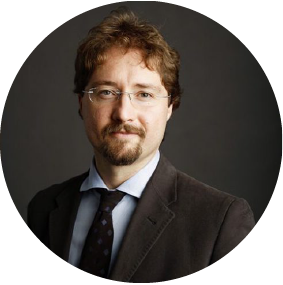 |
Telmo PievaniProfessor Telmo Pievani is Full Professor at the Department of Biology, University of Padua, where he covers the first Italian chair of Philosophy of Biological Sciences. He also teaches Bioethics and Science Communication. Since 2016, he is Rector’s Delegate for the Institutional Communication of the University of Padua. Researcher in the field of Philosophy of Biology, he has also been Professor of Philosophy of Science at the University of Milan Bicocca (2001-2012). Since 2017, he is the President of the Italian Society of Evolutionary Biology. Professor Pievani is a Fellow of several academic institutions and scientific societies and he is a Member of the editorial board of Evolution: Education and Outreach, Evolutionary Biology, Rend. Lincei Sc. Fis. Nat., and Le Scienze, Italian edition of Scientific American. He is author of 232 registered publications, including several books. In 2014 Professor Pievani curated the new permanent exhibitions of the “Garden of Biodiversity”, inside the historical Botanical Garden of Padua. Since 2017, he is a Scientific and Communication Consultant for Parco Natura Viva, Italy. |
|
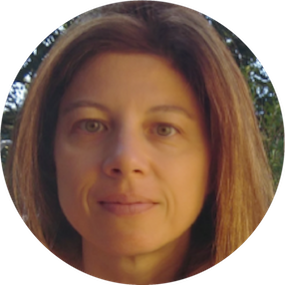 |
Sara Rota NodariDr Sara Rota Nodari holds a Degree in Veterinary Medicine, specialised in Applied Ethology and Welfare of Domestic Animals, University of Milan. From 2000 to 2007 she was a scholarship holder of research projects on pig pathology and animal welfare at the “Istituto Zooprofilattico Sperimentale” of the region of Lombardy and Emilia Romagna (IZSLER), Brescia. From 2007 to 2008 she was the official Veterinary at Brescia’s Local Health Authority, and she was responsible for animal health and slaughter. From 2008, Dr Nodari has become Veterinary Manager at IZSLER, collaborating with its National Reference Centre of Animal Welfare. From 2019 she holds a Senior professional position at the Laboratory of Autovaccine and reagents production at IZSLER and she collaborates with TAIEX, FVO and EFSA. |
|
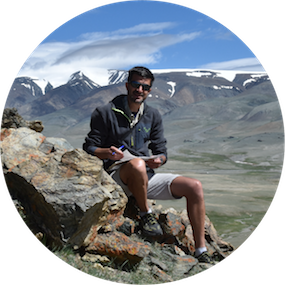 |
Francesco RoveroDr Francesco Rovero is an ecologist and holds a M.Sc. in Natural Sciences (1995, University of Florence) and a Ph.D. in Animal Ecology (2000, University of Wales, UK) focusing on abundance estimation, habitat association modelling and community ecology, with most of his experience on tropical forest mammals as the subject and camera trapping as the detection method. The managing of a long-term programme in Tanzania allows him to pursue his overarching interest in conservation biology, through biodiversity assessment and monitoring, advisory for protected area management, capacity building of local staff, and field-based higher education training. |
|
 |
Tim SchikoraDr Tim Schikora holds a M.Sc. and Ph.D in Biology from the University of Frankfurt, Germany. Since 2015, he is the Zoological Director and CEO of Schwerin Zoo after having worked at Dortmund and Frankfurt Zoos. Furthermore, he is a Member of the Executive Board of VdZ, the German speaking zoo association. With high passion, Dr Schikora works also as the International Studbook Keeper and Coordinator of the EEP for Giant Otters (Pteronura brasiliensis), a fast-growing conservation programme for this endangered species with strong bonds to the IUCN and in-situ partners. |
|
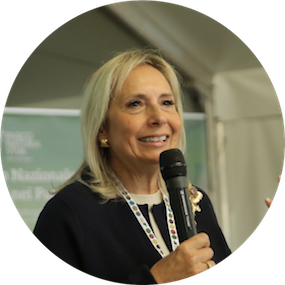 |
Gloria SvampaMs Gloria Svampa Garibaldi obtained a Degree in Natural Sciences in 1977 at University of Rome “La Sapienza”, and from 1978 to 1998 was Zoologist and General Curator of the Zoological Garden of Rome. She’s been the President of the Italian Association of Zoos & Aquaria (UIZA) for the last 10 years, linking Rome Zoo as well as all Italian zoos to ex-situ and in-situ conservation programs, to the international zoo community mission and activities, promoting in-country application of the World Zoo Conservation Strategy. Since June 1998 she is Curator of the Mammals Collection of the City Museum of Zoology of Rome and Zoologist Responsible of the Museum Conservation Office, Environmental Legislations and International Relationship Office. Ms Svampa Garibaldi is a Member of the National Association of Scientific Museums (ANMS), Honorary Member of the Italian Association of Zoos and Aquaria. Since many years, she is a Member of CBSG/SSC/IUCN and of the CBSG Strategic Committee. In 2013 she was the Chairman of the Scientific Committee of the Rome Zoo and since 1984 she is Member of the Italian CITES Scientific Authority. |
|
 |
Paolo TrevisiGraduated in 2000 in Animal Production Sciences at the University of Bologna, in 2005 Professor Trevisi achieved a Ph.D. in Zootechnical Sciences in the same University. In 2011 he was nominated Researcher and he became Associate Professor in 2013. In the last 14 years he has collaborated in five European projects in the field of animal husbandry, and his research activities have been focused on studying strategies to reduce the use of antibiotics in pigs farming. These include nutritional aspects (e.g. zootechnical additives and nutritional needs) and aspects linked to animal welfare (e.g. prevention of aggressive behaviours). Since 2014, he collaborates with the Region of Emilia Romagna for the drafting of guidelines on sustainable agriculture with low use of antibiotics. |
Guest speaker
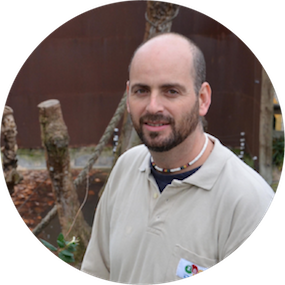 |
Raul CabreraICZ Conservation ChairApe keeper at Barcelona Zoo |
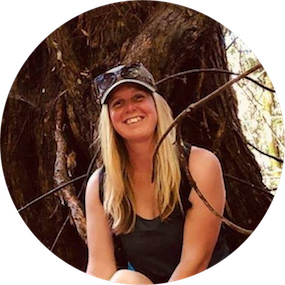 |
Joanne RichardsonICZ Congress Committee |
|||
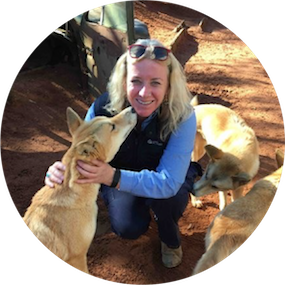 |
Liz RomerAnimal Collection Coordinator at Sydney Zoo |
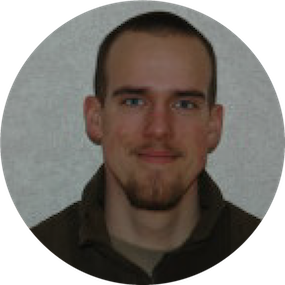 |
Lex van der LeijeZookeeper at Gaia Zoo |
|||
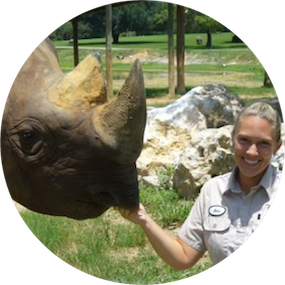 |
Sara StewardICZ Secretary and Executive Officer |
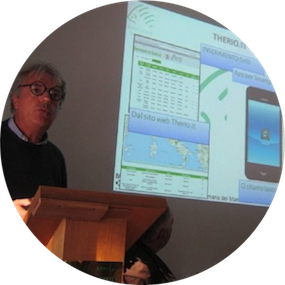 |
Giovanni AmoriSenior Researcher |
|||
|
|
|
|
|
|
|
|
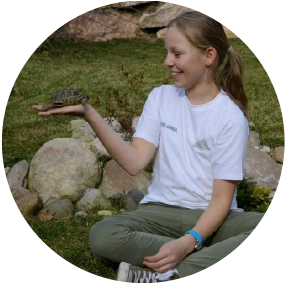 |
H.S.H. Princess Theodora von LiechtensteinFounder |
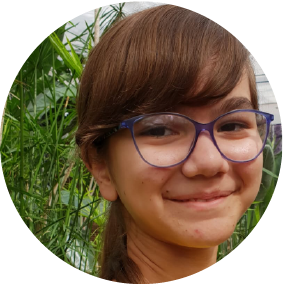 |
Francesca BoscoGreen Teen Team Ambassador |
|||
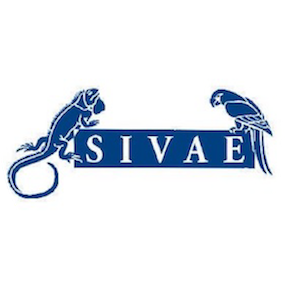 |
SIVAESocietà Italiana Veterinari per Animali Esoticiwww.sivae.it |
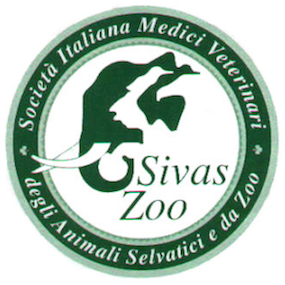 |
SIVASZOOSocietà Italiana Medici Veterinari degli Animali Selvatici e da Zoowww.sivaszoo.it |
|||
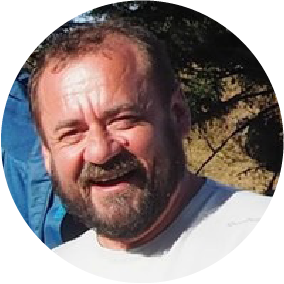 |
Alexandru BulacuExecutive Director - Romanian Wilderness Society |
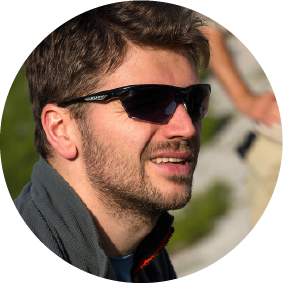 |
Adrian HagatisManaging Director |
Sponsor
Venue
Il convegno si svolgerà all’interno del Parco Natura Viva di Bussolengo (VR). La registrazione, l’assegnazione del badge identificativo e la consegna del materiale avverrà durante l’intero svolgimento del convegno presso l’info point, all’ingresso del Parco Faunistico. La sede delle sessioni scientifiche sarà all’interno del Parco; delle apposite indicazioni lungo il percorso guideranno i partecipanti. Dal momento che il convegno si svolgerà all’interno del Parco Natura Viva in orario di apertura al pubblico, è fondamentale per tutti i partecipanti indossare sempre il badge identificativo fornito al momento della registrazione.
Strutture Convenzionate
Il Parco Natura Viva è convenzionato con le seguenti strutture alberghiere per offrire una tariffa agevolata ai partecipanti al X Convegno Nazionale della Ricerca nei Parchi.
Agriturismo La Palazzina
Via Palazzina, 12, I-37014 Castelnuovo del Garda (VR) - Telefono: 340 7329120 - Mail: info@agriturismolapalazzina.org
Relais Corte Pontigliardo
Via Pontigliardo, 20, I-37017 Colà di Lazise (VR) - Telefono: 045 6490122 - Mail: info@cortepontigliardo.it
Agriturismo La Palazzina
Via Palazzina, 12, I-37014 Castelnuovo del Garda (VR) - Telefono: 340 7329120 - Mail: info@agriturismolapalazzina.org
Relais Corte Pontigliardo
Via Pontigliardo, 20, I-37017 Colà di Lazise (VR) - Telefono: 045 6490122 - Mail: info@cortepontigliardo.it
 Italiano
Italiano English
English Deutsch
Deutsch

